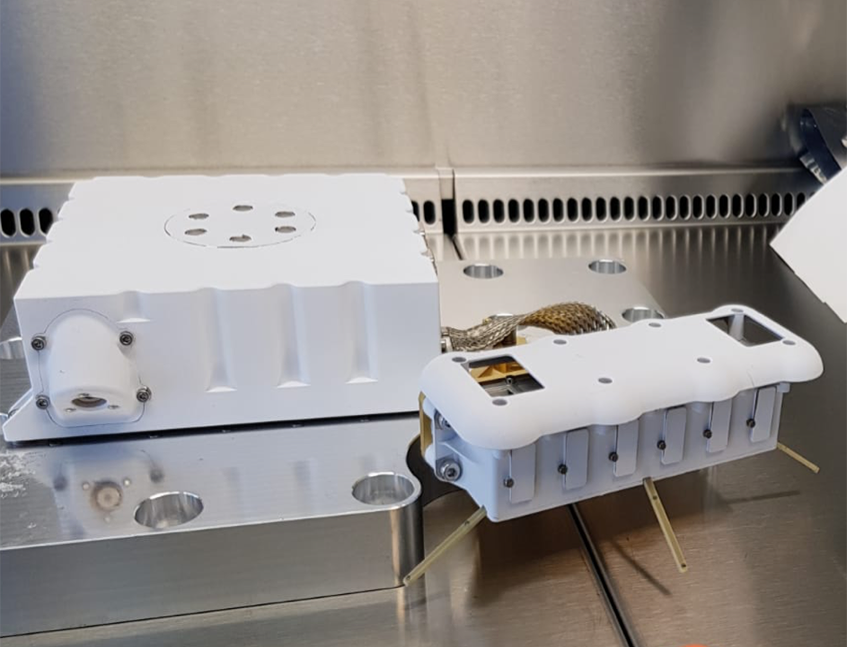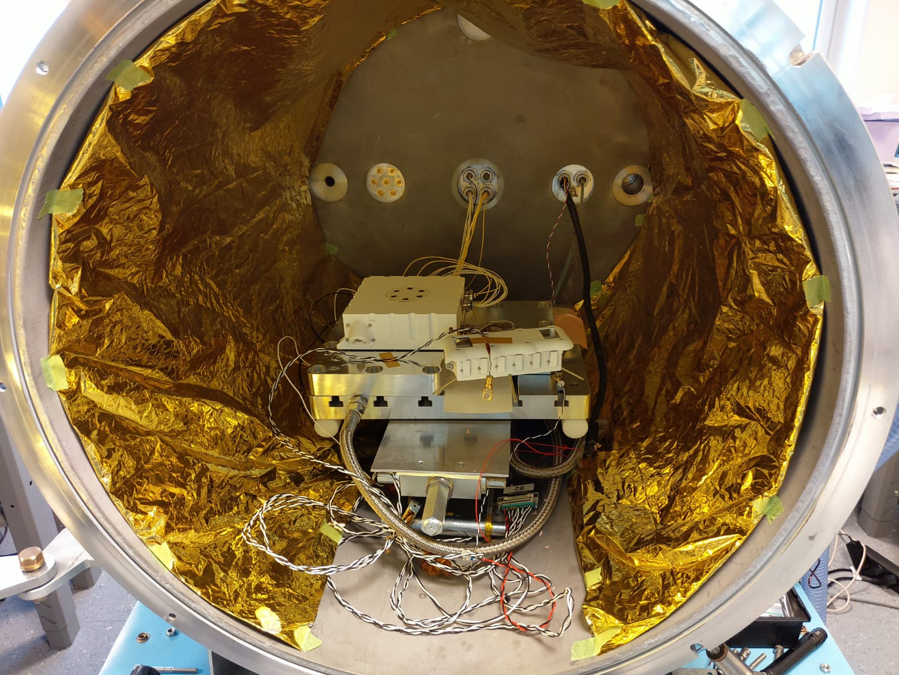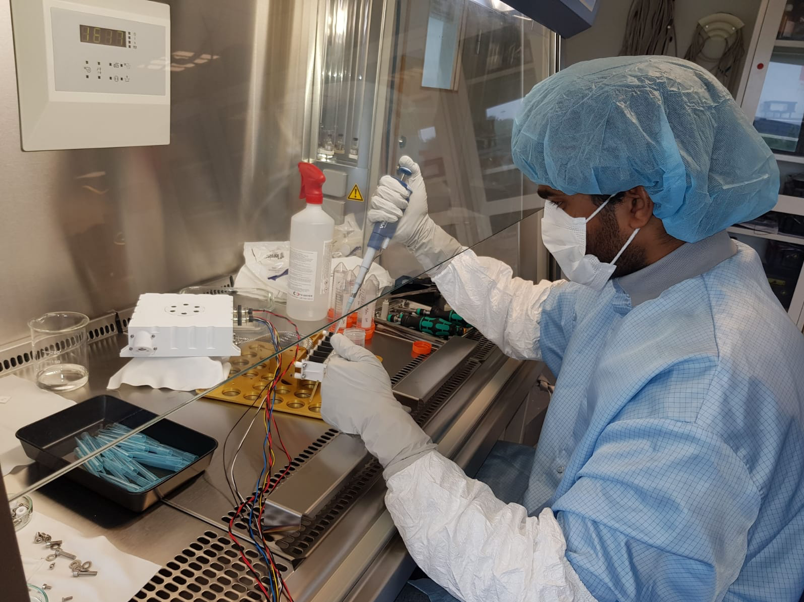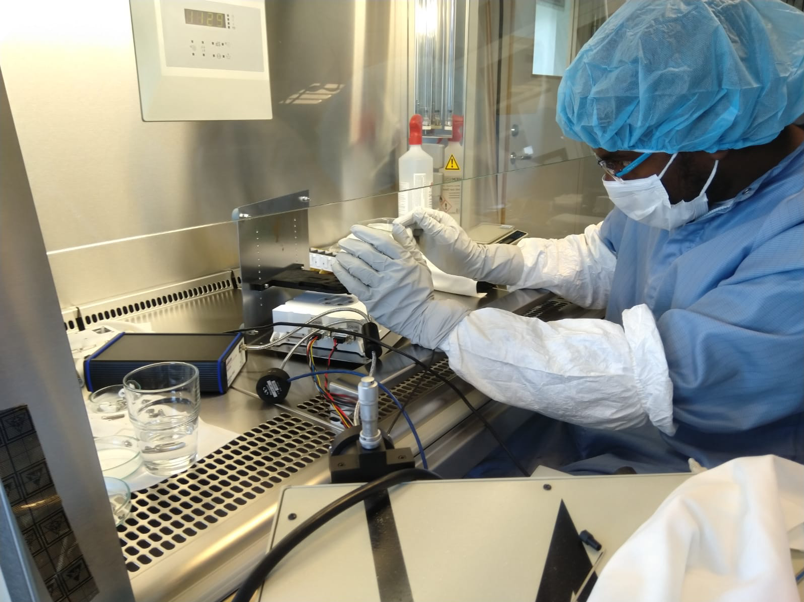Calibration
HABIT has undergone an intensive campaign of calibration and testing with its three development units. The Engineering Model (EM) has been used to test the nominal operation under Martian conditions and to verify functionality after the launch and cruise phase in the SpaceQ chamber which has been recently mounted and commissioned by the GAS group, at LTU, in Luleå. The EM model was used also to prepare the calibration procedures and verify the data quality of each of the sensors of HABIT, namely the UltraViolet Sensor (UVS), the Air Temperature and Wind Sensor (ATWS), the Ground Temperature Sensor (GTS) and the Brine Observation Transition To Liquid Experiment (BOTTLE). The EM was also used to perform a long-time outdoors simulation in two Mars analogue environments, in Kiruna, Sweden, during the Arctic winter and at the Boulby salt mine, in UK, as part of the MINAR campaign.
The final calibration of the Engineering Qualification Model (EQM) and the Flight Model (FM) has been implemented in the Clean Room environment of Omnisys Instruments, in Gothenburg, the industrial partner of LTU for HABIT development. The engineers and PhD candidates of the Group of Atmospheric Science (GAS), Alvaro Soria-Salinas, Miracle Israel Nazarious, Samuel Konatham, Thasshwin Mathanlal and Abhilash Vakkada Ramachandran, have participated in this campaign, under the supervision of Prof. Javier Martin-Torres and Prof. Maria-Paz Zorzano.
After delivery of the HABIT FM, the HABIT EQM, a unit which is identical to the FM, will be used for further testing. In particular, it will be tested in the Wind Tunnel facility of Aarhus University’s Mars Simulation Laboratory in Denmark, to demonstrate the wind retrieval procedure of the HABIT ATWS.

HABIT Flight Model (FM) during calibration and testing in the Clean Room | Credits: GAS group

Flight Model ready for vacuum test and temperature calibration | Credits: GAS group

Calibration of the electrical conductivity as measured by the Flight Model BOTTLE-HABIT unit with standard solutions | Credits: GAS group

Calibration of the linearity of the UVS with the HABIT Flight Model in the clean room | Credits: GAS group
The final HABIT calibration and testing activities would not have been possible without the generosity of the Kempe Foundation, the Wallenberg Foundation and the unconditional support from Teknikens Hus in Luleå. The HABIT Team is in debt with all them. Omnisys Instruments also generously provided its facilities in Gothenburg for the development of these activities.